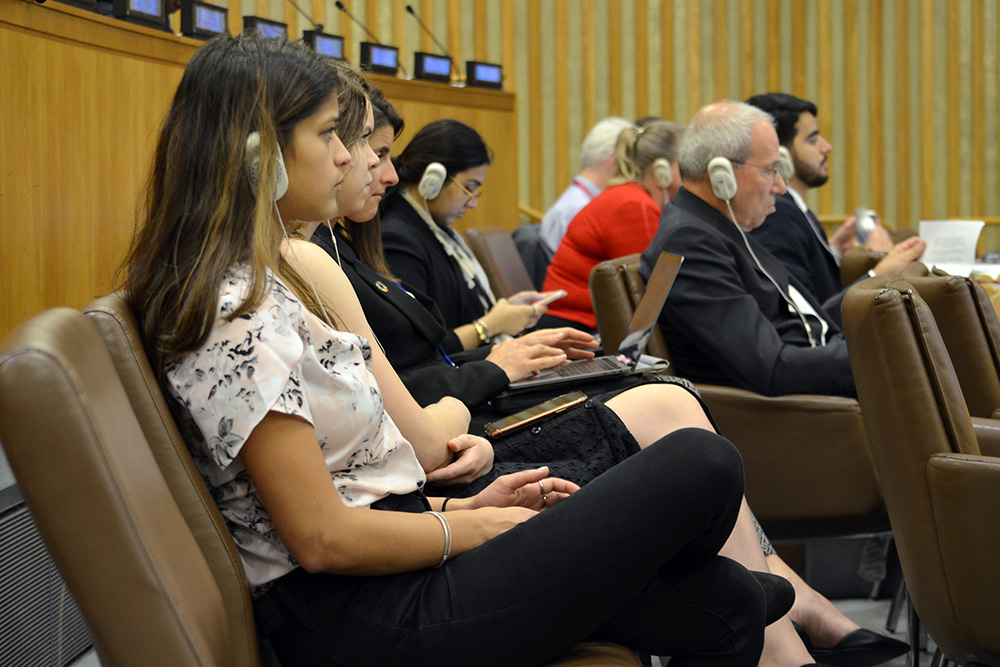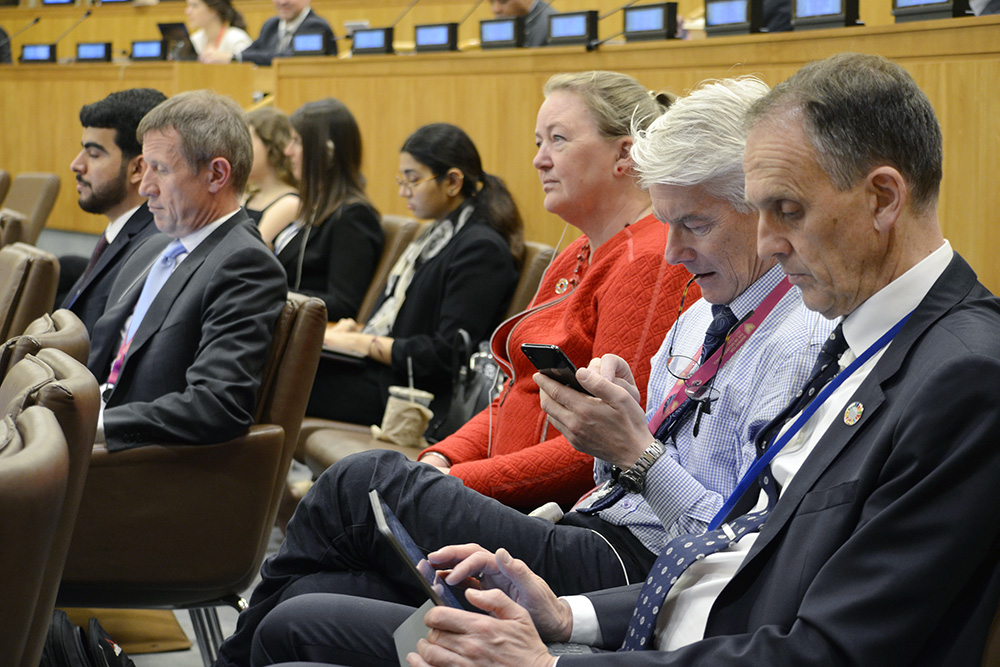Highlights for Wednesday, 12 June 2019
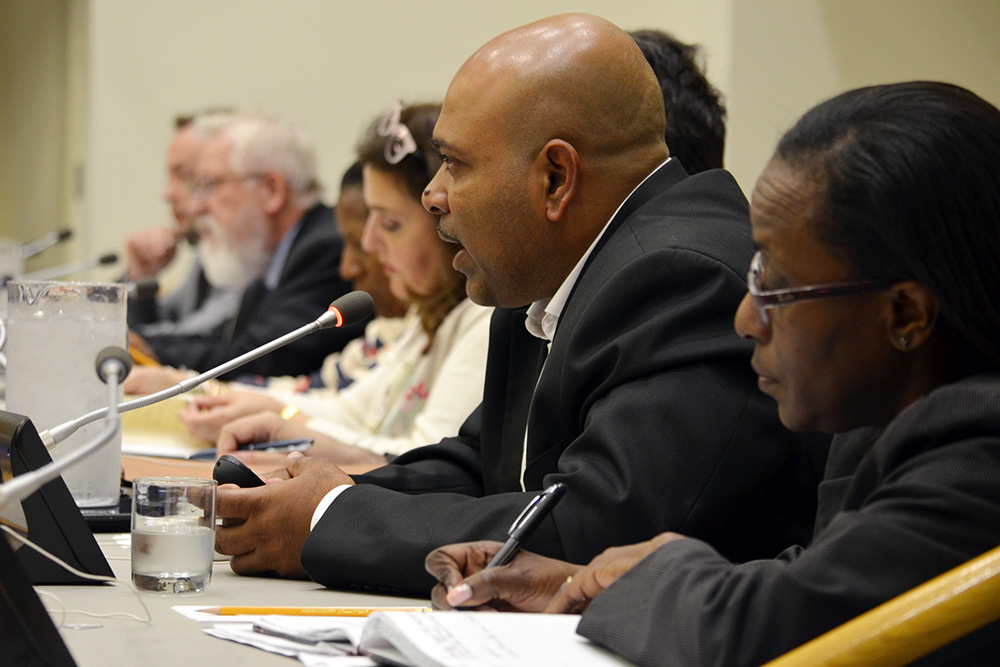
Dayne Buddo, Alligator Head Foundation, Jamaica, during his presentation in the morning on the role of non-governmental organizations in supporting ocean science
On Wednesday, ICP-20 delegates resumed informal consultations through two panel discussions, under the topic, “International Cooperation and Coordination in Advancing Ocean Science and Addressing Related Gaps.”On gaps in ocean science and possible approaches to fill them, delegates discussed, inter alia:
current ocean science technologies, such as use of Argo robots to collect temperature and salinity data, and integration with emerging technologies through the Global Ocean Observing System;
the role of the Ocean Acidification International Coordination Centre in promoting international collaboration on ocean acidification through data portals, standardized methodology, and sharing of best practices with member states;
the utility of exploration data from International Seabed Authority for cooperation and coordination in deep-sea marine science; and
the OceanX pursuit to step up underwater exploration in order to increase scientific knowledge and public awareness of the ocean and its vital importance to humanity.
On increased cooperation and coordination, key topics considered included:
the role of non-governmental organizations (NGOs) in supporting ocean science, with examples of public-engagement strategies to protect and restore marine habitats and fish stocks in marine sanctuaries;
international cooperation in data management, noting the need for a new paradigm to ensure data are findable, accessible, interpretable, and reusable;
strengthening the science-policy interface at the global level, noting that supporting the management and sustainable development of natural resources is a key role of science.
Key additional points included the unique opportunity provided by the UN Decade to strengthen collaboration and data sharing to empower nations in achieving the Sustainable Development Goals, and the benefits of combining traditional ecological knowledge and western science to develop models for sustainable resource use.During the afternoon break, delegates attended a side event on “Traditions, Tools and Technologies for Advancing Ecosystem-based Management for the Global Ocean.”
IISD Reporting Services, through its Earth Negotiations Bulletin (ENB) meeting coverage, provided daily web updates from the 20th Meeting of the UN Open-ended Informal Consultative Process on Oceans and the Law of the Sea. In addition, IISD Reporting Services, has published a summary and analysis report of the meeting, which is available in HTML and PDF.
Morning Panel on International Cooperation and Coordination in Advancing Ocean Science and Addressing Related Gaps

Panelists of the morning session on “International cooperation and coordination on ocean science” with Co-Chairs and Secretariat
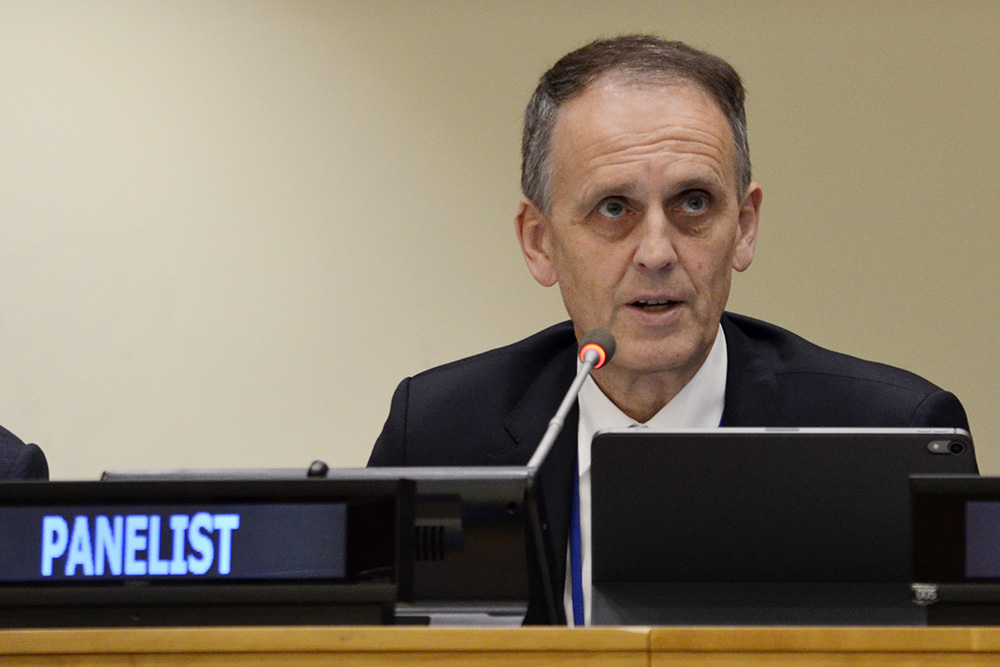
Peter Haugan, Chair, Intergovernmental Oceanographic Commission of UNESCO (IOC-UNESCO), Norway
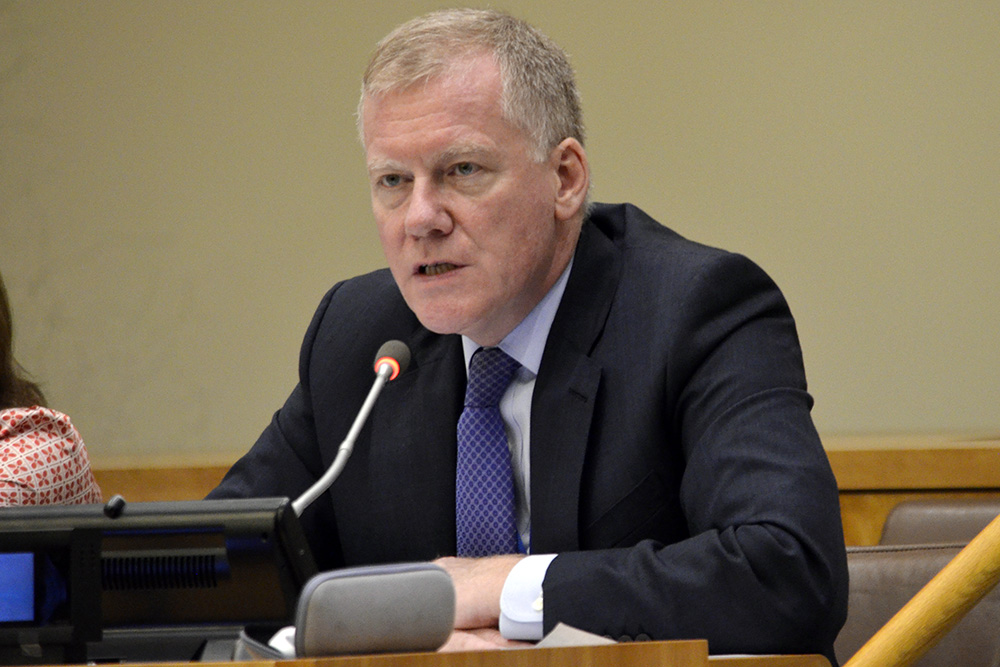
Michael Lodge, Secretary-General, International Seabed Authority
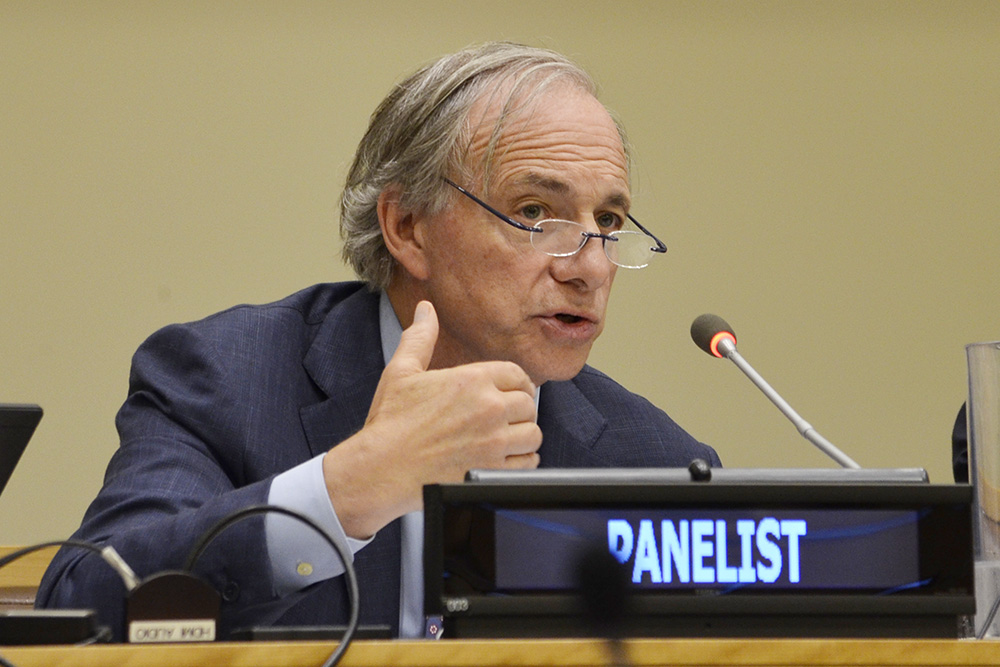
Ray Dalio, Co-founder, OceanX
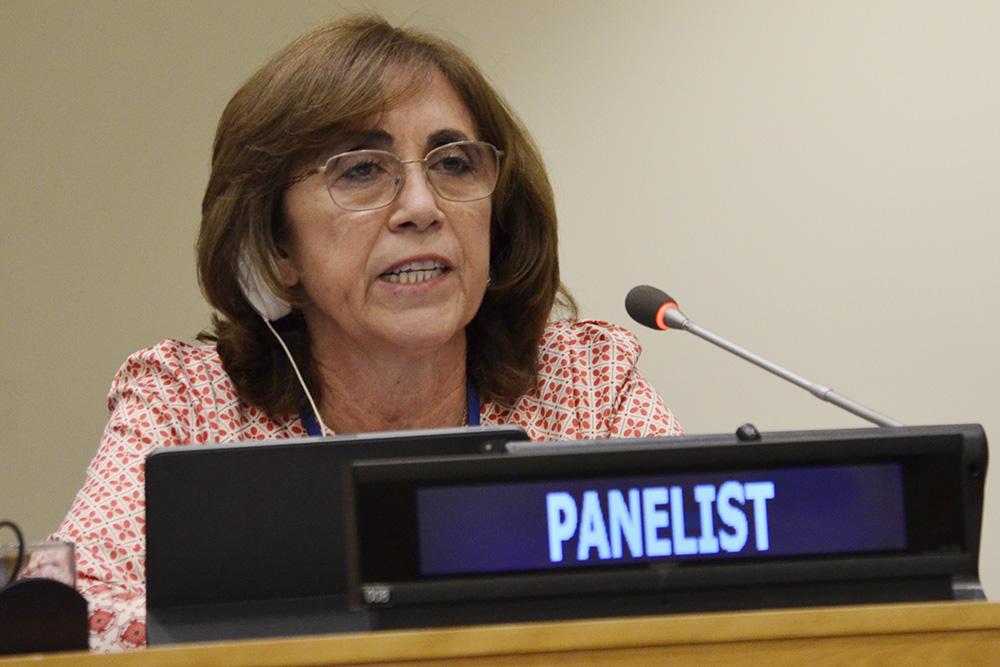
Frida Maria Armas-Pfirter, University of Buenos Aires, Argentina

Panelists from the side event on “Traditions, Tools and Technologies for Advancing Ecosystem-based Management for the Global Ocean”
Afternoon Panel on International Cooperation and Coordination in Advancing Ocean Science and Addressing Related Gaps
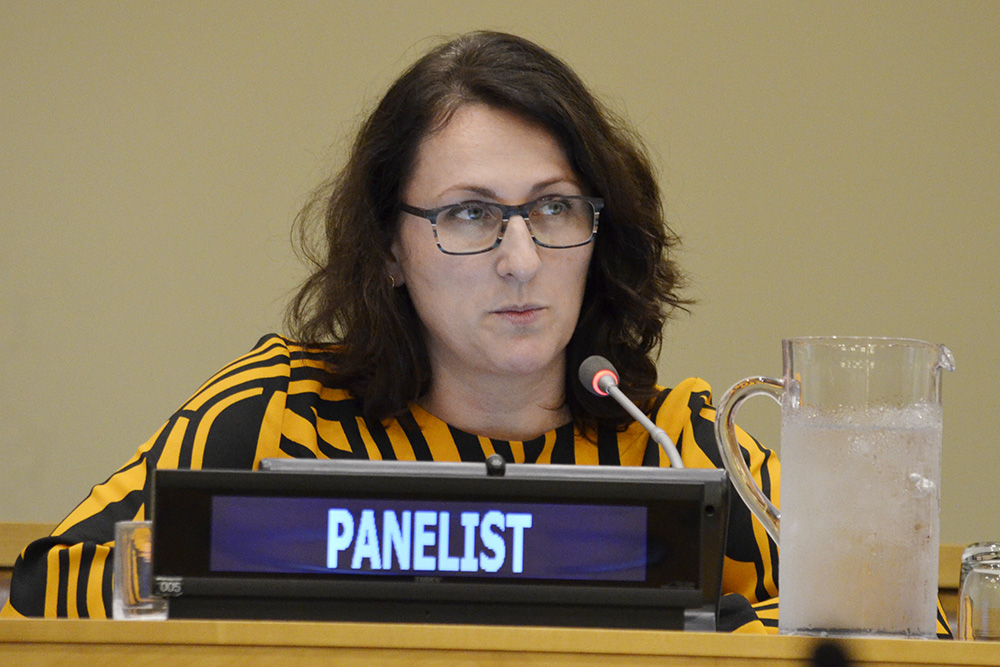
Monika Stankiewicz, Executive Secretary, Baltic Marine Environment Protection Commission – Helsinki Commission
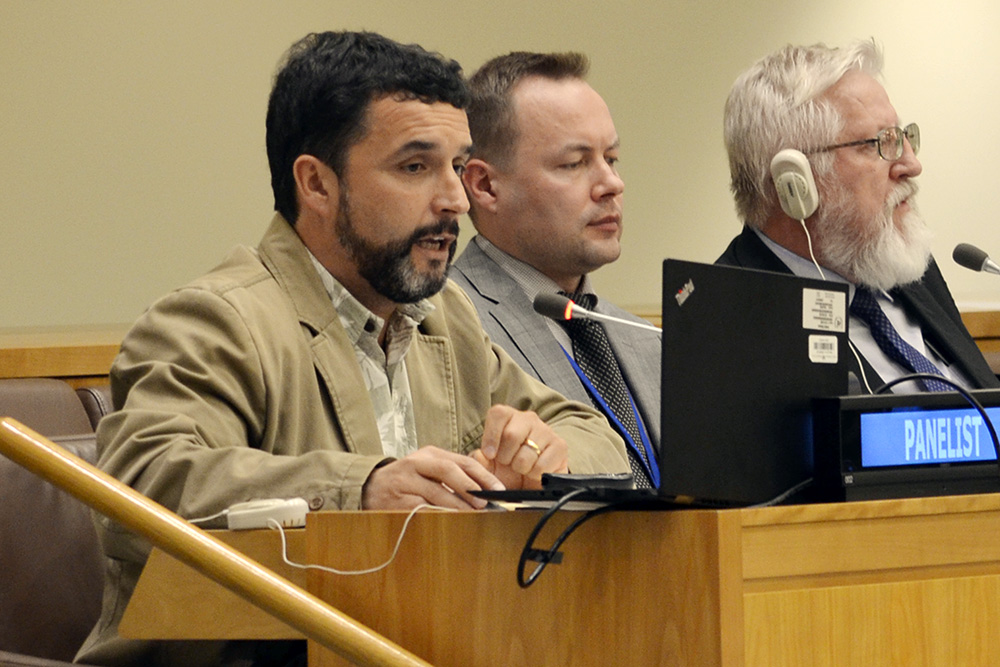
Carlos F. Gaymer, Millennium Nucleus Center of Ecology and Sustainable Management of Oceanic Islands
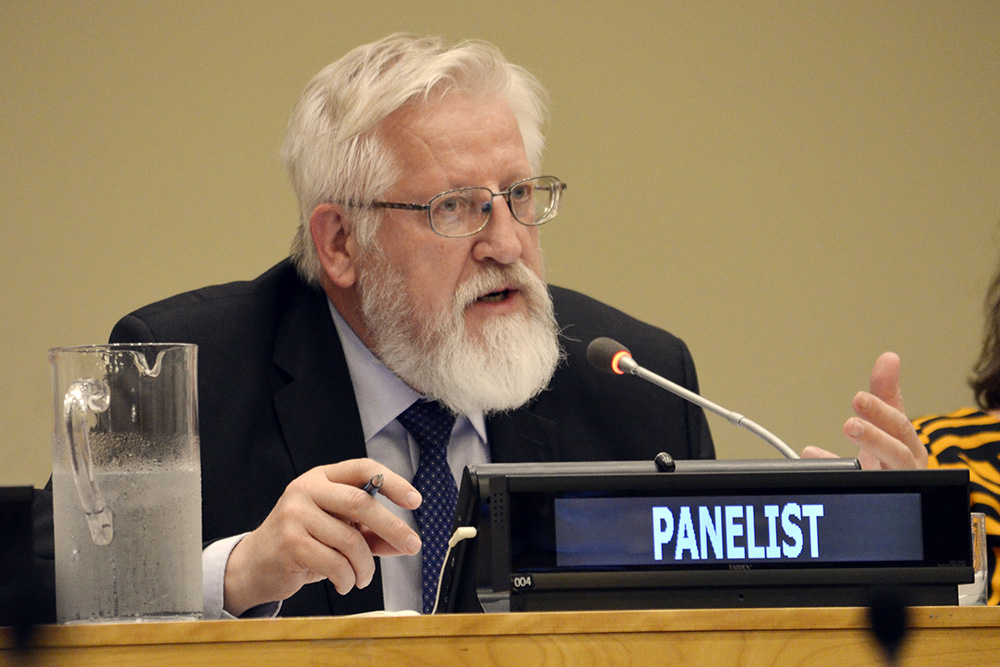
Tarmo Soomere, Estonian Academy of Sciences, Estonia
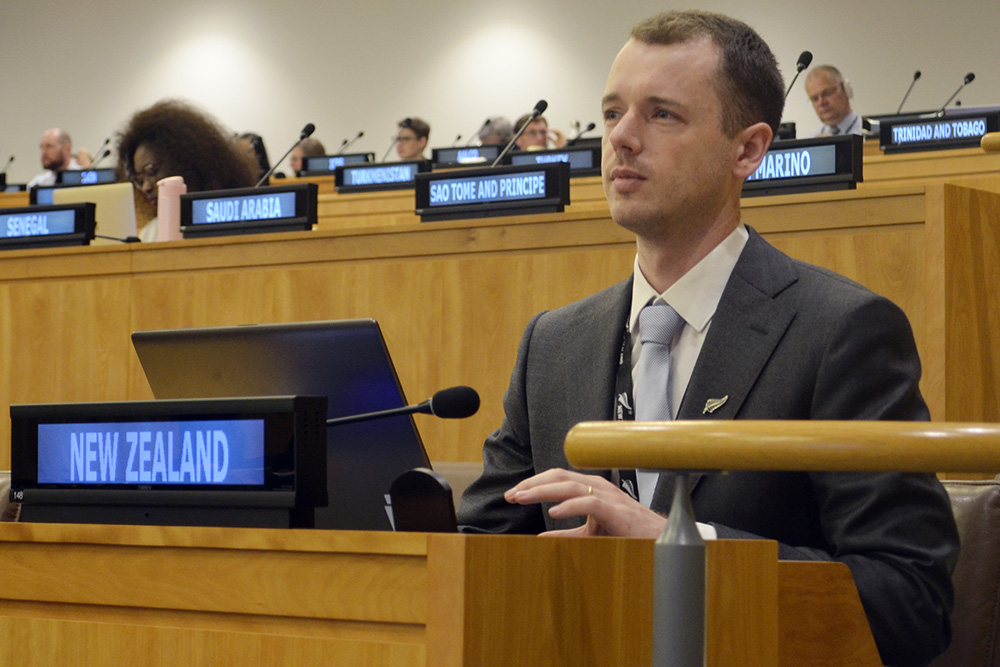
Luke Roughton, New Zealand, follows the panel discussion
Delegates listen during panel discussions











